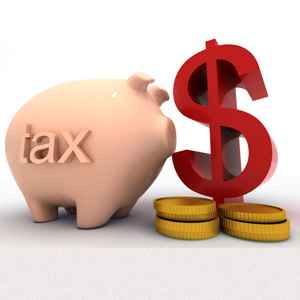During the 2013 Budget Statement early last week, and in response to the demands by local businesses for assistance in dealing with rising costs, Finance Minister Tharman Shanmugaratnam has announced that all Singapore companies will receive a 30% Corporate Income Tax (CIT) rebate. The rebate is subject to a cap of $30,000 per year of assessment (YA) and will be available for the YA 2013, 2014 and 2015.
Singapore company registration specialist Rikvin recognizes that the latest tax rebate scheme augurs well for the economy by creating a multiplier effect. Currently, Singapore’s corporate tax rate stands at 17% – one of the lowest in the world – with full or partial tax exemption of income up to S$300,000 (75% for the first $10,000 and 50% for the next $290,000) for Singapore-registered startups and eligible firms. Lower tax rates ranging from 0% to 15% are also available for qualifying companies under the various tax incentive schemes such as the Regional or International Headquarter Scheme.
The CIT rebate will be made available to all companies in Singapore including registered business trusts, companies that are not tax resident in Singapore, and companies that receive income taxed at a concessionary tax rate. However, the rebate will not apply to the amount of income derived by a non-resident company, which will then be subject to final withholding tax.
Moreover, like the newly-introduced Wage Credit Scheme, no application is required on the part of companies as IRAS (Inland Revenue Authority of Singapore) will compute the amount automatically when assessing their annual income tax returns.
The CIT rebate will be calculated on the tax payable after deducting tax set-offs such as foreign tax credit and unilateral tax credit. However, if a company’s income is taxed at both concessionary and normal tax rates, the rebate will be based on the aggregate gross tax payable for both concessionary and normal income.
“The latest measure is an indication that the government is recognizing the repercussions of rising manpower costs to companies due to more stringent measures taken to the Singapore work pass framework. Other factors such as rising rentals and shifting to more productivity-driven processes are also eating up profits. In all, the CIT rebate is expected to cost the government S$1.3 billion over the three-year period,” informed Ms. Christine Lim, General Manager of Rikvin.
“So if a company in Singapore has a normal chargeable income of S$500,000, its effective tax rate will only be 8.27%, taking into account the partial tax exemptions and CIT rebate. Compare this with top marginal personal income tax rate of 20% and there is a clear case for self-employed high-net-worth-individuals to incorporate a Singapore company,” concluded Ms. Lim.

Rikvin’s content team includes in-house and freelance writers across the globe who contribute informative and trending articles to guide aspiring entrepreneurs in taking their business to the next level in Asia.


